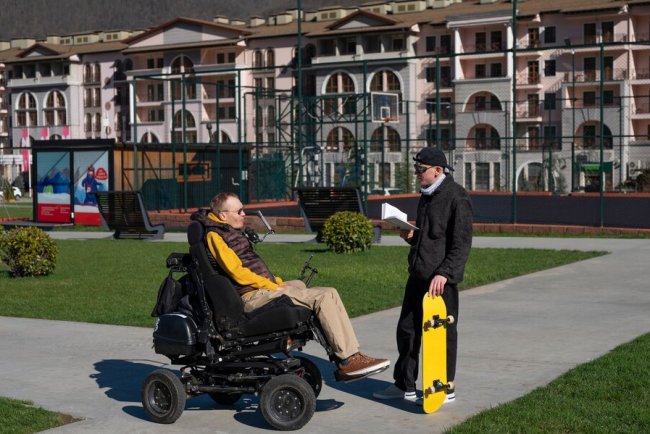Cigna Wrongfully Denies LTD Benefits for Honolulu Underwriter with Trigeminal Neuralgia
Cigna wrongfully denied LTD benefits to a Honolulu underwriter with trigeminal neuralgia. The article details the challenges, resolution, and broader implications.

Long-term disability (LTD) insurance is a critical safety net for individuals who cannot work due to severe medical conditions. When an insurance company like Cigna wrongfully denies these benefits, it can significantly impact the affected person's life. This article examines a case in which Cigna denied LTD benefits to an underwriter in Honolulu suffering from trigeminal neuralgia. We will explore the details of the case, the challenges faced, the steps taken to resolve the issue, and the broader implications for similar situations.
Understanding Long-Term Disability Benefits
Long-term disability insurance is designed to provide financial support to individuals who are unable to work for an extended period due to serious health conditions. These benefits help cover living expenses and maintain financial stability while the individual focuses on managing their health.
The Importance of LTD Benefits
LTD benefits are essential for individuals who face prolonged health issues that prevent them from performing their job duties. They offer financial assistance, which helps cover daily living expenses, medical costs, and other necessities. Without these benefits, individuals may struggle to make ends meet, exacerbating the stress and challenges of their medical condition.
The Case: Honolulu Underwriter with Trigeminal Neuralgia
The focus of this article is a Honolulu resident who worked as an underwriter and was denied LTD benefits by Cigna. The individual suffered from trigeminal neuralgia, a debilitating condition affecting the trigeminal nerve in the face.
Trigeminal Neuralgia Explained
Trigeminal neuralgia is characterized by severe, sudden, and recurring pain in the face, typically affecting one side. The pain can be triggered by everyday activities such as chewing, talking, or touching the face. This condition can significantly impair a person's ability to work and engage in daily activities, making it a serious disability.
Challenges in Securing LTD Benefits
Securing LTD benefits can be fraught with challenges, particularly when dealing with wrongful denials by insurance companies. These challenges can stem from various factors, including misinterpretation of medical evidence, policy discrepancies, and administrative errors.
Misinterpretation of Medical Evidence
One of the primary issues in LTD claims is the misinterpretation of medical evidence. Insurance companies may undervalue or misunderstand the severity of the medical condition based on the documentation provided. In this case, Cigna may have misinterpreted the medical evidence related to the underwriter's trigeminal neuralgia.
Policy Discrepancies
Discrepancies between the insurance policy terms and the client’s condition can also contribute to wrongful denials. Insurance companies might apply policy terms incorrectly or fail to recognize the full impact of the medical condition. A detailed understanding of the policy terms is crucial for addressing these issues.
Administrative Errors
Administrative errors, such as processing mistakes or miscommunication, can lead to wrongful denials or delays in benefits. Ensuring that all paperwork is processed correctly and communications are clear is vital for maintaining the continuity of benefits.
Questionable Medical Reviews
Insurance companies often rely on medical reviews to make decisions regarding LTD benefits. If these reviews are biased or inadequate, they can result in wrongful denials. In this case, the medical review process conducted by Cigna may have been flawed.
Steps Taken to Address the Wrongful Denial
Addressing a wrongful denial of LTD benefits involves several steps, from reviewing the denial notice to pursuing legal action if necessary. The following steps outline how the situation with Cigna was handled.
Reviewing the Denial Notice
The first step in addressing the wrongful denial was to thoroughly review the denial notice issued by Cigna. This notice provided the reasons for the denial and highlighted any issues identified by the insurer. Understanding these reasons was critical for formulating an effective response.
Gathering and Analyzing Medical Evidence
A comprehensive review of the client’s medical records was necessary to challenge the wrongful denial. This included:
- Records from Treating Physicians: Documentation from doctors who had been treating the client for trigeminal neuralgia.
- Specialist Reports: Evaluations from specialists who could provide insight into the severity and impact of the condition.
- Treatment Histories: Information on ongoing treatments, medications, and their effectiveness in managing the condition.
Analyzing the Insurance Policy
An in-depth analysis of the insurance policy provided by Cigna was conducted. This involved understanding the policy terms and how they applied to the client’s specific condition. Identifying any discrepancies or misinterpretations was crucial for challenging the denial.
Preparing and Submitting the Appeal
Preparing a robust appeal was a key component of addressing the wrongful denial. The appeal included:
- Refuting Reasons for Denial: Addressing incorrect claims made by Cigna regarding the medical evidence or policy terms.
- Submitting Additional Evidence: Providing new or supplementary evidence to support the claim and demonstrate the ongoing impact of trigeminal neuralgia.
Engaging in Negotiations
Negotiations with Cigna were an essential part of the process. Discussions aimed to reach a resolution, whether through settlement or an agreement to reinstate benefits. Effective negotiation was crucial in resolving the dispute in favor of the client.
Pursuing Legal Action
If negotiations did not yield a satisfactory outcome, legal action was pursued. This involved filing a lawsuit to challenge the wrongful denial and seek a favorable resolution through the courts. Legal action was a last resort but necessary to ensure the client’s rights were upheld.
Outcome and Impact
Through the dedicated efforts to address the wrongful denial, the client's LTD benefits were eventually reinstated. This outcome provided essential financial support and stability, underscoring the importance of effective legal representation in resolving disputes with insurance companies.
Broader Implications
The successful resolution of this case highlights several important points:
- Importance of Legal Representation: Experienced legal representation is crucial for navigating the complexities of LTD claims and addressing wrongful denials.
- Need for Thorough Documentation: Comprehensive medical and policy-related documentation is essential for supporting claims and challenging wrongful denials.
- Role of Advocacy: Advocacy and negotiation play a significant role in securing benefits and resolving disputes with insurance companies.
Additional Resources and Support
For individuals facing similar challenges, several resources and support options are available:
- Medical Support: Continuing treatment with healthcare professionals to manage the medical condition and gather necessary documentation.
- Disability Advocacy Organizations: Seeking support from organizations that advocate for disability rights and provide resources.
- Financial Planning Services: Consulting with financial advisors to manage the impact of disability benefits and plan for future needs.
- Support Groups: Joining support groups for individuals with similar conditions to connect with others and access additional resources.
The case of the Honolulu underwriter with trigeminal neuralgia highlights the complexities involved in securing long-term disability benefits. Through dedicated efforts, the wrongful denial of benefits by Cigna was addressed, providing the client with much-needed support. This case serves as a reminder of the critical role of legal representation in navigating disability insurance claims and ensuring that individuals with serious medical conditions receive the support they are entitled to.
FAQ
What is trigeminal neuralgia?
Trigeminal neuralgia is a condition characterized by severe, sudden, and recurring facial pain due to irritation or damage to the trigeminal nerve. It can significantly impair a person's ability to work and perform daily activities.
What are long-term disability (LTD) benefits?
LTD benefits provide financial support to individuals who are unable to work for an extended period due to serious health conditions, covering a portion of their income and helping with living expenses.
Why might an insurance company wrongfully deny LTD benefits?
Insurance companies might wrongfully deny LTD benefits due to misinterpretation of medical evidence, policy discrepancies, administrative errors, or biased medical reviews.
What should I do if my LTD benefits are denied?
Review the denial notice, gather and analyze medical evidence, understand the insurance policy, prepare and submit an appeal, engage in negotiations, and consider legal action if necessary.
How can a lawyer assist with a wrongful denial of LTD benefits?
A lawyer can evaluate the case, gather evidence, interpret policy terms, handle appeals and negotiations, and provide legal representation throughout the process.
What types of medical evidence are important for challenging a wrongful denial?
Important medical evidence includes records from treating physicians, specialist reports, and treatment histories that document the severity and impact of the condition.
How long does it typically take to resolve a dispute over LTD benefits?
The resolution time can vary, but the process generally involves reviewing the claim, gathering evidence, filing appeals, and potentially engaging in legal action, which can take several months.
What additional resources are available for individuals with disabilities?
Additional resources include medical support from healthcare professionals, disability advocacy organizations, financial planning services, and support groups.
How can a lawyer help with negotiations with an insurance company?
A lawyer can advocate for the client’s rights, negotiate terms, and seek a resolution, whether through settlement or agreement to reinstate benefits.
Can legal action be taken if negotiations with an insurer fail?
Yes, legal action can be pursued if negotiations do not result in a satisfactory resolution, involving filing a lawsuit to challenge the wrongful denial and seek a favorable outcome through the courts.
What's Your Reaction?




















